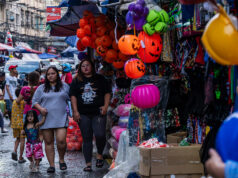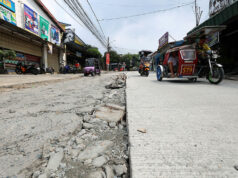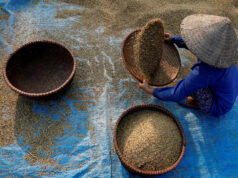Philippines won’t tolerate ICC meddling in drug war, says DoJ

By John Victor D. Ordoñez, Reporter
THE PHILIPPINES would not tolerate “external interference” by the International Criminal Court (ICC), its Justice chief told the United Nations (UN) Human Rights Council on Wednesday night, saying it does not have the power to investigate the country’s deadly drug war.
“We draw the line, as any sovereign state must, when an international institution overreaches and departs from the boundaries of its creation,” Justice Secretary Jesus Crispin C. Remulla said in a speech before the UN in Geneva, according to a video posted on the UN website.
“Unjustified external interference has very rarely if at all, served the cause of human rights,” said the Justice, who spoke at the council’s 52nd session.
Mr. Remulla said the state does not condone extralegal killings. “Let me assure this council, partners and civil society: To reiterate, there is no culture of impunity in the Philippines.”
“We are doubling our efforts in ensuring that individuals who have breached the bounds of the law, state actors included, meet justice,” he added.
In January, the ICC pre-trial chamber reopened its investigation into killings and so-called crimes against humanity under ex-President Rodrigo R. Duterte’s anti-illegal drug campaign. The Hague-based tribunal said it was not satisfied with Philippine efforts to probe the deaths.
President Ferdinand R. Marcos, Jr. has called the ICC’s probe a threat to the country’s sovereignty, saying the court does not have jurisdiction over the Philippines.
He said the Philippine justice system could hold erring officials accountable.
The tribunal, which tries people charged with crimes against humanity, genocide, war crimes and aggression, suspended its probe of Mr. Duterte’s deadly war on drugs in 2021 upon the Philippine government’s request.
It was also set to probe vigilante-style killings in Davao City when Mr. Duterte was still its vice mayor and mayor.
On Tuesday, Mr. Remulla told UN member states the Philippine government is aware of problems with its prison system and is doing something about the criminal justice system.
Ephraim B. Cortez, president of the National Union of Peoples’ Lawyers, said the ICC probe does not violate Philippine sovereignty.
The court has the authority to probe drug-related deaths including those that happened after the Philippines sent a notice that it was withdrawing from the ICC and before it took effect, he said in a Viber message, citing the treaty that created the body. “It is all about complying with our treaty obligations.”
Mr. Duterte withdrew Philippine membership in the ICC. Mr. Marcos has said the country would not rejoin.
Last year, the Philippines accepted 200 UN Human Rights Council recommendations, including investigating extralegal killings and protecting journalists.
More than 30 member-states of the UN Human Rights Council have urged the Philippine government to do something about human rights violations in connection with Mr. Duterte’s anti-illegal drug campaign.
‘DIGNITY FOR ALL’
“While the Philippines is a sovereign country, it is part of the international community with rights and responsibilities,” Maria Ela L. Atienza, who teaches political science at the University of the Philippines, said in a Viber message.
It is a member of the United Nations and a signatory to many human rights conventions,” she said. “It is also bound to promote and protect human rights and to be accountable for its actions. One country cannot hide behind the sovereignty principle when it has accepted international norms on human rights and even put into national laws these human rights principles.”
Last week, a delegation of lawmakers from the European Union said the Philippines should rejoin the ICC to show its commitment to human rights.
Hannah Neumann, a vice chairperson of the European Parliament subcommittee on human rights, said lawmakers and other state officials seemed more willing to discuss reported rights violations than the previous administration.
“We’d be very happy to see the Philippines rejoin the Rome Statute of the ICC as it would clearly reinforce the government’s commitment to fighting impunity,” she told a press briefing.
Mr. Remulla told the EU lawmakers on Feb. 23 the Philippine government could investigate human rights abuses under the war on drugs without the ICC’s intervention.
Philippine police arrested 8,183 drug suspects in 6,044 illegal drug operations from the start of the year to Feb. 11, national police chief General Rodolfo S. Azurin, Jr. said on Feb. 13.
Human rights abuses continued under the first six months of the Marcos government, Human Rights Watch said in a report on Jan 12.
The Philippine government estimates that at least 6,117 suspected drug dealers had been killed in police operations. Human rights groups say as many as 30,000 suspects died.
The UN Human Rights Committee has said the Philippines should comply with international human rights mechanisms and cooperate with the ICC’s drug war probe.
The Commission on Human Rights has said the Duterte government had encouraged a culture of impunity by impeding independent probes and failing to prosecute rogue cops.
“Let us uphold sovereignty and harness solidarity to promote and protect human rights and dignity for all,” Mr. Remulla said.



